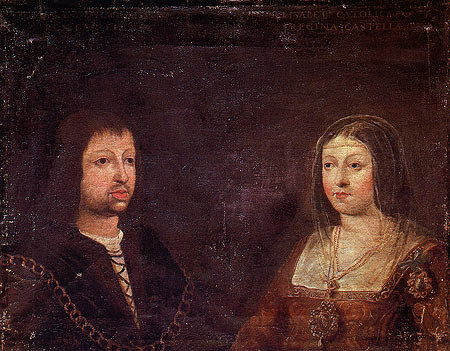Centuries After 1492 Expulsion, Spain Welcomes Back Sephardic Jews, But What About Muslims?

More than five centuries after their expulsion, Sephardic Jews are being welcomed back to Spain under an offer of restored citizenship by the Madrid government.
In 1492, in the same year that Christopher Columbus “discovered” America, Spain’s legendary King Ferdinand and Queen Isabella declared Spain a “Roman Catholic kingdom,” requiring the Jews to either leave the country or forcibly convert to Catholicism.
The deportations occurred in the context of the infamous Spanish Inquisition, a bloody campaign designed to impose and maintain Catholic orthodoxy in the country.
Historical accounts suggest that as many as 200,000 Jews fled Spain (and principally migrated to North Africa and the Ottoman Empire, while now they are found across the world, including in Israel, the U.S., South America, Greece, Bulgaria, France and the U.K.).
However, recent scholarly studies, including research by British historian Henry Kamen, indicate that only 40,000 Jews left Spain, while an equal number stayed and converted to Christianity. (By the following century, the Muslims of Spain were also ordered to leave)
Since those tumultuous years, very few of the descendants of those deported Jews have returned to Spain --- the country currently has a Jewish population of about 40,000, according to The World.org.
Now, that may be changing.
Last November, the Spanish justice minister, Alberto Ruizo-Gallardon, delivered a speech at a Jewish center in Madrid in which he declared: “In the long journey Spain has undertaken to rediscover a part of herself, few occasions are as moving as today. The measure we’re announcing will let anyone who can prove their Sephardic origins obtain Spanish nationality.”
According to the Spanish Federation of Jewish Communities, an umbrella group that represents Spanish Jews, they have received about 6,000 inquiries from Jews in the Diaspora who may want to return to the country.
Some are suspicious about the Spanish government’s motives for wanting Jews to move back.
Maria Josep Estanyol, a historian at the University of Barcelona, told BBC that the departure of the Jews in 1492 – many of whom were affluent bankers, textile traders and jewelers – proved to be disastrous for Spain’s economy. (Spain today also finds itself in a seemingly intractable economic crisis, featuring 25 percent joblessness).
Referring to the embrace of the Jews by the Ottoman Empire (i.e., present-day Turkey), she said: “At the time…. the sultan was said to have commented that he couldn’t understand why a great Spanish king like Ferdinand would go without the Jews, who were such a source of wealth, and just give them to him. The sultan was very pleased to receive these Jewish families, who went on to enrich his empire.”
Estanyol does not believe many Jews will want to move back to Spain now, in the midst of its economic crisis.
“Given how disastrous things are here today, I’d advise against it,” she added.
The World suggested that the measure may have been designed by Spain to appease Israel, after Madrid supported the Palestinians bid for a seat at the United Nations last year.
BBC reported that the Madrid government is still working out details of the repatriation scheme, with a bill to be presented to Parliament. That measure is likely to grant automatic Spanish citizenship to anyone who can prove they are the descendants of the Sephardic Jews (while keeping their existing passports).
Now the descendants of Spanish Muslims who were expelled in the decades after the Jewish expulsion are calling for parity. (Muslims and Arabs ruled much of the Iberia peninsula for nearly eight centuries until 1492).
Soeren Kern, a senior fellow at the New York-based Gatestone Institute, wrote that some millions of Moriscos (descendants of formerly Spanish Muslims) live across North Africa and Middle East.
Moroccan journalist Ahmed Bensalh Es-salhi wrote an op-ed in Correo Diplomático, in which he lamented that the "decision to grant Spanish citizenship to the grandchildren of the Hebrews in Spain in the fifteenth and sixteenth centuries, while ignoring the Moriscos, the grandsons of the Muslims, is without doubt, flagrant segregation and unquestionable discrimination, as both communities suffered equally in Spain at that time. The decision could also be considered by the international community to be an historic act of absolute immorality and injustice. … This decision is absolutely disgraceful and dishonorable."
Bensalh added: "Is Spain aware of what might be assumed when it makes peace with some and not with others? Is Spain aware of what this decision could cost? Has Spain considered that it could jeopardize the massive investments that Muslims have made on its territory? Does Spain have alternatives to the foreign investment from Muslims if they ever decide to move that capital to other destinations due to the discrimination against Muslims?"
© Copyright IBTimes 2024. All rights reserved.





















